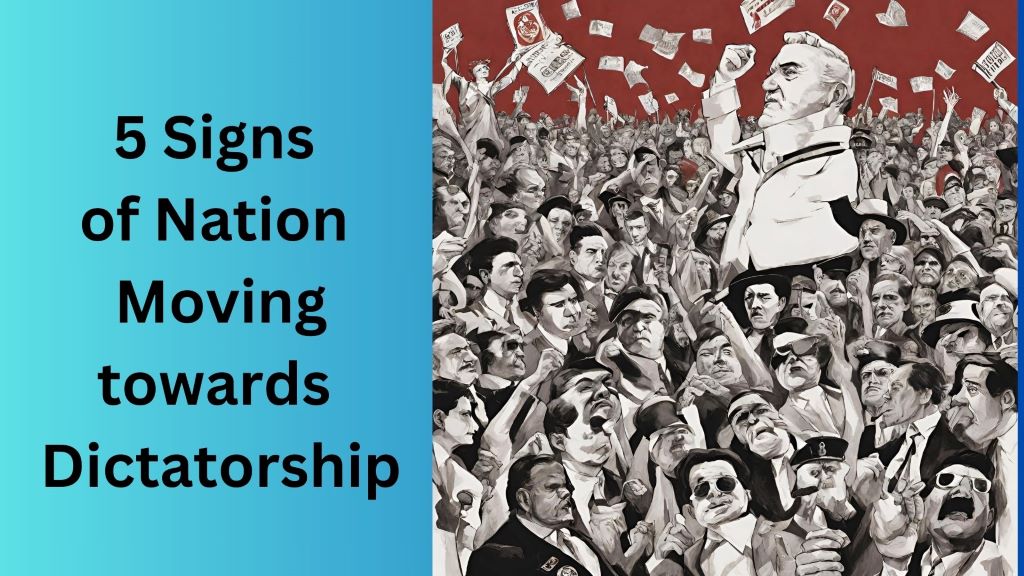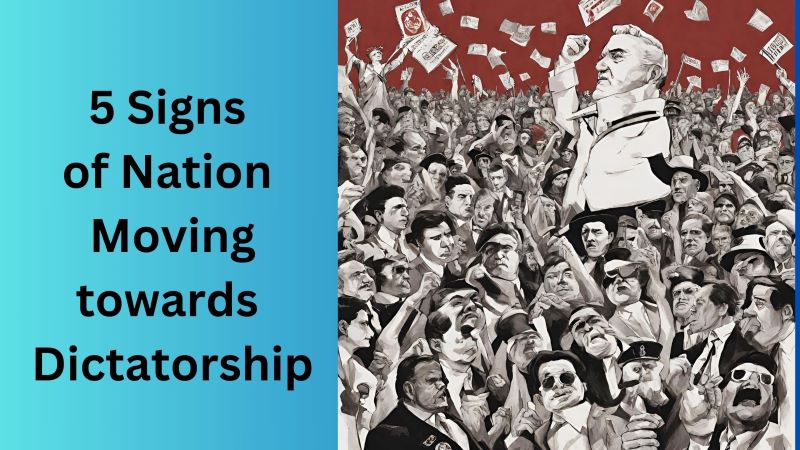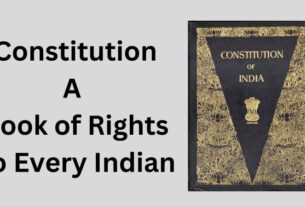India, the world’s largest democracy, has long been celebrated for its commitment to democratic values, pluralism, and civil liberties. However, recent political developments and shifts in governance have raised concerns about the state of democracy in the country. This article critically examines the indicators suggesting a potential drift towards authoritarianism or dictatorship in India and evaluates the implications for its democratic fabric.

- Erosion of Institutions:
One of the hallmarks of a robust democracy is the presence of strong and independent institutions that act as checks and balances on executive power. In recent years, there have been instances of the erosion of institutional autonomy and integrity, with concerns raised about political interference in key institutions such as the judiciary, law enforcement agencies, and regulatory bodies. Attempts to undermine the autonomy of institutions undermine the democratic principles of separation of powers and undermine accountability mechanisms.
- Suppression of Dissent:
A vibrant democracy thrives on the free exchange of ideas, dissent, and constructive criticism. However, there has been a growing trend of stifling dissent and curbing freedom of expression in India. Cases of journalists, activists, and intellectuals facing harassment, intimidation, or legal action for expressing dissenting views have raised alarms about the shrinking space for dissent in the country. The use of sedition laws and other legal mechanisms to suppress dissent undermines democratic principles and stifles pluralism.
- Centralization of Power:
Centralization of power in the hands of the executive branch can undermine democratic principles by weakening the role of other democratic institutions, such as the legislature and judiciary. In recent years, there have been concerns about the concentration of power in the hands of the central government, with critics pointing to the use of executive orders, bypassing parliamentary scrutiny, and diminishing the role of state governments. The centralization of power can lead to authoritarian tendencies and undermine the federal structure of governance.
- Polarization and Divisive Politics:
Political polarization and the use of divisive rhetoric can undermine social cohesion and weaken democratic institutions. In India, there has been a rise in identity-based politics, communalism, and polarization along religious, caste, and regional lines. The use of inflammatory language and the stoking of communal tensions for political gains exacerbate social divisions and undermine the inclusive ethos of democracy. Polarization can also impede consensus-building and hinder the functioning of democratic institutions.
- Threats to Media Freedom:
A free and independent media plays a crucial role in holding power to account, informing the public, and fostering democratic discourse. However, there have been concerns about threats to media freedom in India, including censorship, intimidation of journalists, and the spread of misinformation. The targeting of critical journalists and the growing influence of partisan media outlets undermine the credibility of the press and weaken its ability to act as a watchdog.
Conclusion:
While India remains a vibrant democracy with a robust tradition of democratic governance, recent trends raise legitimate concerns about the health of its democratic institutions and values. The erosion of institutional autonomy, suppression of dissent, centralization of power, polarization, and threats to media freedom are indicators that cannot be ignored. It is imperative for stakeholders, including citizens, civil society organizations, and political leaders, to safeguard democratic principles, uphold constitutional values, and ensure accountability and transparency in governance. Only through collective vigilance and commitment to democratic ideals can India navigate the challenges and reaffirm its status as a thriving democracy.



